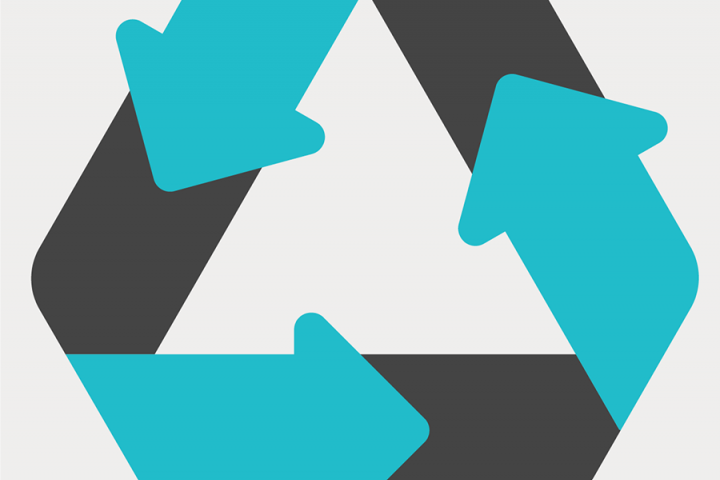Recycling
English
Recycling
Recycling is the process of converting waste materials into new materials and objects. It is an alternative to "conventional" waste disposal that can save material and help lower greenhouse gas emissions. Recycling can prevent the waste of potentially useful materials and reduce the consumption of fresh raw materials, thereby reducing: energy usage, air pollution (from incineration), and water pollution (from landfilling). Recycling is a key component of modern waste reduction and is the third component of the "Reduce, Reuse, and Recycle" waste hierarchy. Thus, recycling aims at environmental sustainability by substituting raw material inputs into and redirecting waste outputs out of the economic system. There are some ISO standards related to recycling such as ISO 15270:2008 for plastics waste and ISO 14001:2004 for environmental management control of recycling practice.
Dutch
Recycling
Recycling/recyclage is het proces van het omzetten van afvalstoffen in nieuwe materialen en objecten. Het is een alternatief voor "conventionele" afvalverwijdering dat materiaal kan besparen en de uitstoot van broeikasgassen kan helpen verminderen. Recycling kan de verspilling van potentieel nuttige materialen voorkomen en het verbruik van verse grondstoffen verminderen, waardoor het energieverbruik, de luchtvervuiling (door verbranding) en de watervervuiling (door storten) afnemen. Recycling is een belangrijk onderdeel van de moderne afvalreductie en is de derde component van de "Reduce, Reuse, and Recycle" afvalhiërarchie. Zo is recycling gericht op milieuduurzaamheid door de input van grondstoffen in het economische systeem te vervangen en de output van afval te heroriënteren. Er zijn enkele ISO-normen met betrekking tot recycling, zoals ISO 15270:2008 voor kunststofafval en ISO 14001:2004 voor de milieumanagementcontrole van de recyclingpraktijk.
French
Recyclage
Le recyclage est le processus de transformation des déchets en nouveaux matériaux et objets. C'est une alternative à l'élimination "classique" des déchets qui peut permettre d'économiser des matériaux et de réduire les émissions de gaz à effet de serre. Le recyclage peut empêcher le gaspillage de matériaux potentiellement utiles et réduire la consommation de matières premières vierges, réduisant ainsi : la consommation d'énergie, la pollution de l'air (due à l'incinération) et la pollution de l'eau (due à la mise en décharge). Le recyclage est un élément clé de la réduction moderne des déchets et constitue le troisième élément de la hiérarchie des déchets "Réduire, Réutiliser et Recycler". Ainsi, le recyclage vise à la durabilité environnementale en substituant des matières premières aux déchets et en réorientant les déchets produits hors du système économique. Il existe quelques normes ISO relatives au recyclage, telles que la norme ISO 15270:2008 pour les déchets plastiques et la norme ISO 14001:2004 pour le contrôle de la gestion environnementale des pratiques de recyclage.




